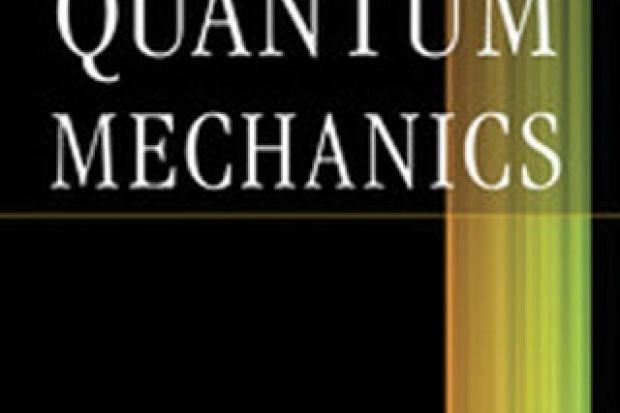Graham Farmelo, by-fellow at Churchill College, Cambridge, is reading Steven Weinberg’s Lectures on Quantum Mechanics (Cambridge University Press, 2012). “Nothing cheers me up quite as much as a really good quantum mechanics textbook. What could be more exhilarating than to see this great theory set out in all its glory? Weinberg’s book is an instant classic of the genre – clear, beautifully structured and replete with insights. This confirms his reputation as not only one of the greatest theoreticians of the past 50 years, but also one of the most lucid expositors. Pure joy.”

Emma Griffin, professor of modern British history, University of East Anglia, is reading David Igler’s The Great Ocean: Pacific Worlds from Captain Cook to the Gold Rush (Oxford University Press, 2013). “The Pacific is home to a vast number of tiny islands probed and charted ever more precisely in Cook’s era. Some of Igler’s topics, such as the devastating epidemiological implications of European exploration on indigenous communities, have been well documented. Others – the decimation of sea otters and fur seals – have attracted far less attention. This is a rare thing: an academic book that is also a thoroughly good read.”

Andrew Hadfield, professor of English, University of Sussex, is reading Ruth Ahnert’s The Rise of Prison Literature in the Sixteenth Century (Cambridge University Press, 2013). “Prison life was varied and interesting in early modern England, as was the literature produced by those incarcerated. Ahnert’s book is not only important but also engaging, mapping out a new territory of pious and inventive writers who lived to write. She is especially good at reading between the lines and bringing to light what even prison writings leave obscure, notably the epistolary relationship in verse between Margaret Douglas and Thomas Howard.”

Tim Hall, professor of interdisciplinary social studies, University of Winchester, is reading David Harvey’s Rebel Cities: From the Right to the City to the Urban Revolution (Verso, 2013). “The great Marxist urbanist puts recent urban crises into their historical contexts. While the fundamentals of the analysis might be familiar, their application is fresh, wide-ranging and directly conveyed. Harvey places the city at the heart of his arguments and lays bare the hegemony and madness of fictitious capitalism.”

Jan Marsh, honorary associate at Newnham College, Cambridge, is reading Lionel Cliff Jansen’s Classified and Classifier: Tilting at Windmills (Aspect Design, 2013). “Democracies offer the right of appeal against official judgements. In this thought-provoking essay, whose wry title invokes Don Quixote, social anthropologist Jansen – born in South Africa, where ‘race classification’ abruptly withdrew his community’s civil rights – recounts his 1977 battle with a UK university to appeal a degree class that precluded postgraduate study. A second section dissects the downgrading in 2012 of some GCSE results. Arguably, by sitting exams, students accept the verdict.”
Register to continue
Why register?
- Registration is free and only takes a moment
- Once registered, you can read 3 articles a month
- Sign up for our newsletter
Subscribe
Or subscribe for unlimited access to:
- Unlimited access to news, views, insights & reviews
- Digital editions
- Digital access to THE’s university and college rankings analysis
Already registered or a current subscriber? Login
